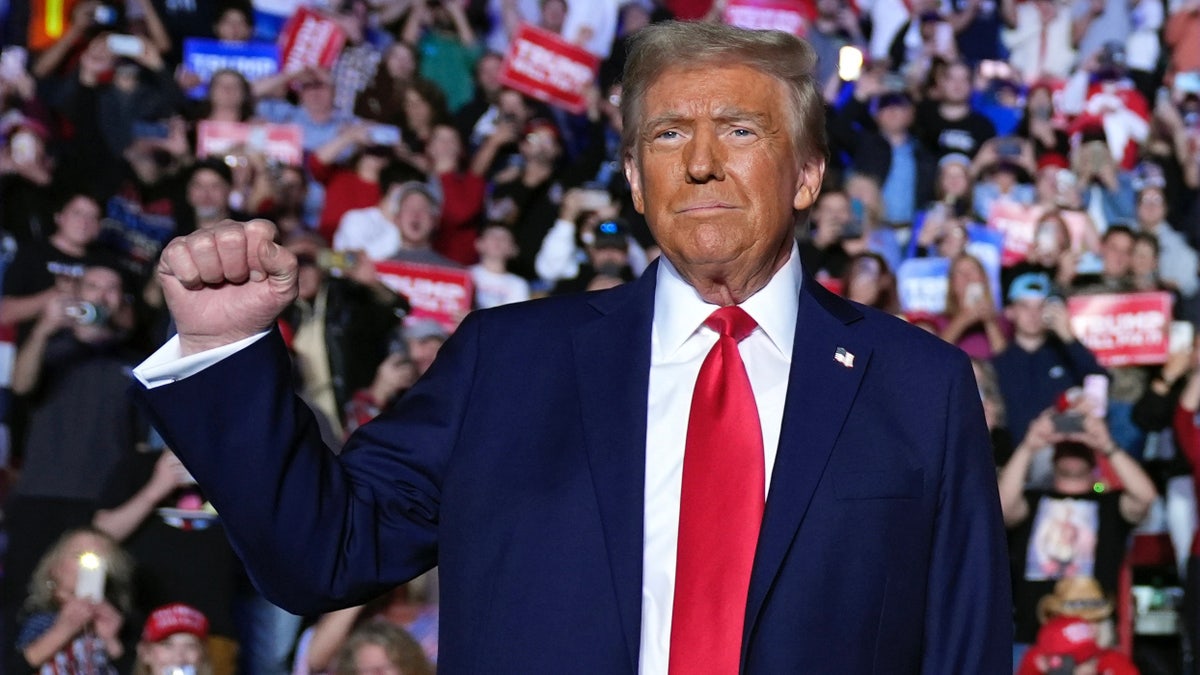Title: President-Elect Trump Signals Ambitious Economic Strategy with Billion Investment in Data Technology
In a critical moment for the nation’s economic landscape, President-elect Donald Trump delivered a keynote address from his Mar-a-Lago residence on Tuesday, marking his first public engagement following the certification of his election victory. This press conference, set against a backdrop of ongoing political discourse, unveiled an ambitious initiative that promises to reshape the U.S. technological framework. Trump announced plans for a substantial billion investment in data centers across key states in the U.S., a move he hailed as a paramount commitment to fostering technological advancement and creating jobs.
The investment, which Trump noted would unfold over a “short period of time,” is orchestrated by DAMAC Properties, a major global real estate developer headed by Hussain Sajwani. The targeted regions for development include critical markets in Texas, Arizona, Oklahoma, Louisiana, Ohio, Illinois, Michigan, and Indiana. This strategic decision underscores an intent to enhance the deployment of artificial intelligence (AI) and cloud-based technologies, reflecting an acute awareness of the digital transformation shaping economies worldwide.
Sajwani elaborated on the rationale behind this investment, encapsulating the necessity of advancing U.S. technological capabilities in a rapidly evolving global market. The partnership with DAMAC signifies a broader ambition to position the United States as a leader in the technology sector. By facilitating the establishment of these data centers, Trump aims to create thousands of new jobs while accelerating the digital infrastructure essential for economic growth.
“We are committed to reducing the bureaucratic entanglements that often impede progress,” Trump stated, outlining a new administrative policy to expedite regulatory approvals for investments exceeding billion. He acknowledged the frustrations expressed by international business leaders concerning what he termed the “quagmire” of U.S. regulations, which often deter potential investments. By streamlining this process, the incoming administration seeks to attract a surge of foreign capital, encouraging enterprises to establish their operations within U.S. borders.
In a notable pivot from current policy trajectories, Trump reiterated his intent to roll back restrictions imposed by the outgoing Biden administration. He highlighted plans to reverse Biden’s recent executive orders that curtailed oil and gas leasing, particularly in offshore areas, as part of a broader initiative aimed at bolstering domestic energy production. His call to “drill baby, drill” resonates with a pro-energy stance that seeks to enhance the United States’ energy independence and reinforce national economic resilience.
Amidst pressing economic discussions, Trump’s remarks also touched on broader geopolitical themes, including his remarks about the Panama Canal. Citing a desire to regain control over what he deems a critical asset, Trump criticized former President Jimmy Carter for relinquishing U.S. oversight of the canal during his term. The former President’s recent passing has revived discussions about the long-term implications of that pivotal moment in U.S. history.
As the nation prepares for this shift, the Democratic administration’s maneuvers to solidify environmental protections and limit fossil fuel extraction stand in stark contrast to Trump’s vision. President Biden’s recent executive order, issued just days before the end of his term, seeks to establish a permanent halt to new oil and gas drilling in vast offshore areas covering approximately 625 million acres. This last-minute regulatory measure reflects concerns over climate stability and environmental degradation, setting the stage for contentious debates over the future of U.S. energy policy.
As the country stands on the precipice of this new economic dawn, the administration transition symbolizes not only a change in leadership but also a profound shift in policy focus. The billion investment in data centers serves as a clarion call for ambitious infrastructure development, energizing both the technology sector and the wider economy. It heralds an era where innovation and economic growth may take precedence over regulatory concerns, shaping the trajectory of American enterprise in the 21st century.
As Trump’s administration gears up to take office, stakeholders across various sectors—technology, energy, and beyond—will closely monitor the unfolding of these ambitious plans. The implications of this tangible investment could reverberate across industries, with potential long-term impacts on the U.S. economy and its position within the global marketplace.
*
Tags: #BusinessNews, #EconomyNews, #UAE

